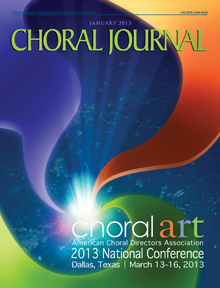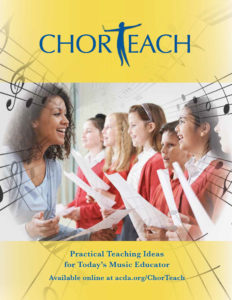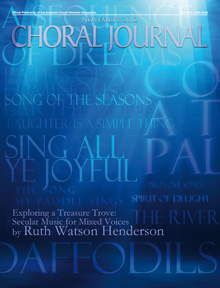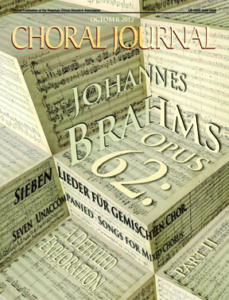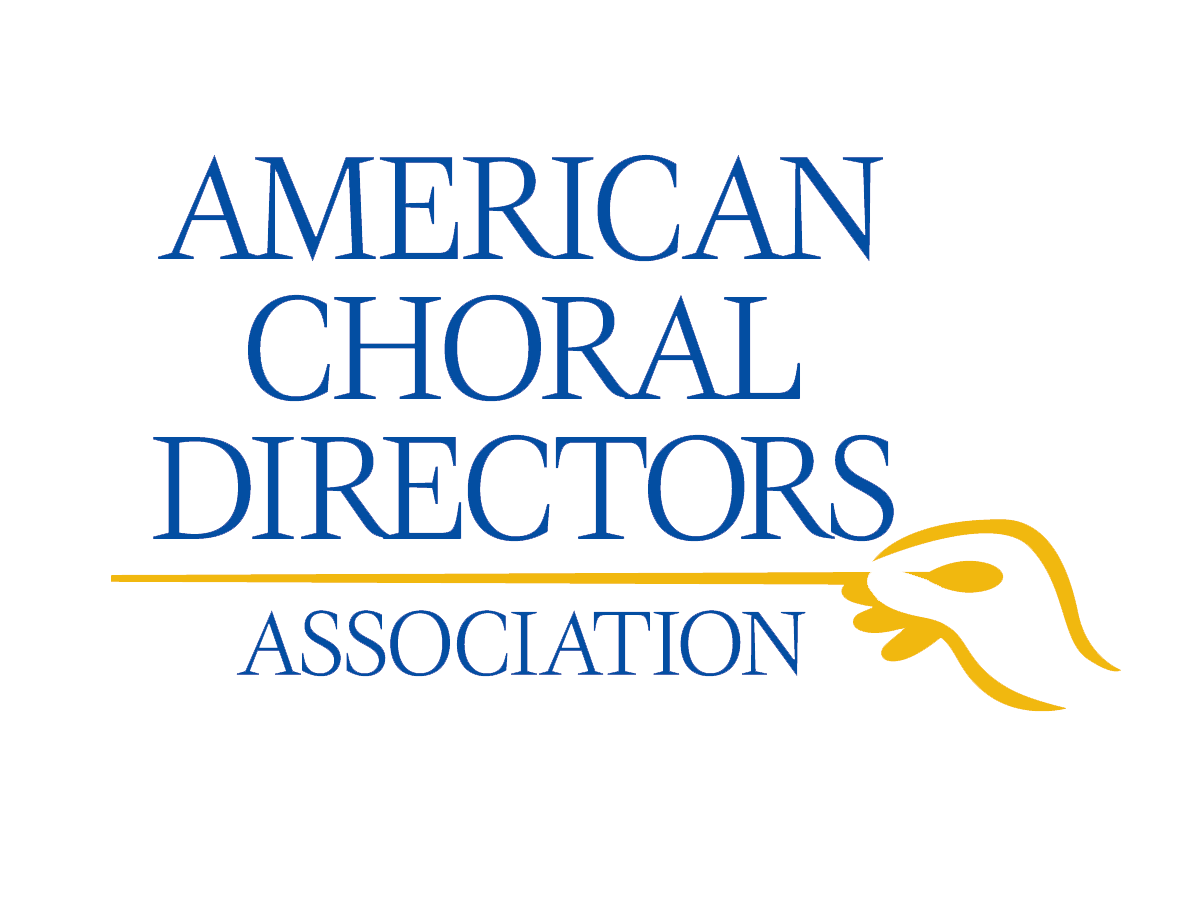Download the complete issue. Articles War Requiem Special Events Performing Choirs Interest Sessions Honor Choir Conductors
Sample Page
IJRCS Volume 4
Fall 2012 Issue:
Editorial: Moving Forward (J. F. Daugherty)
Assessing and Enhancing Feedback of Choral Conductors Through Analysis and
Training (T. Biddlecombe)
Hearing Doses and Perceptions of Hearing and Singing Effort Among University
Choral Singers in Varied Rehearsal and Performance Settings (S. L. Cook-
Cunningham, M. L. Grady, & H. Nelson)
The Effect of Nonverbal Conductor Lip Rounding and Eyebrow Lifting on
Singers’ Lip and Eyebrow Postures: A Motion Capture Study (J. N. Manternach)
Quantitative Voice Class Assessment of Amateur Choir Singers: A Pilot
Investigation (C. T. Herbst, E. Duus, H. Jers, & J. G. Švec)
The A Cappella Oratorio: An Investigation of Interactions Between Ethos and
Fine Art in Choral Singing Among Old Mennonites at Hesston College (1912-
1949)(M. Schloneger)
Students’ Registration in Collegiate Choral Ensembles: Factors That Influence
Continued Participation (T. R. Brown)
Endnotes: Announcements of Professional Interest
Spring 2013 Issue:
Editorial: Voice Care Training for Choral Conductors (J. F. Daugherty)
The English Choral Tradition and the Secular Trend in Boys’ Pubertal Timing (M.
Ashley)
Changes in Tone Quality as a Function of Focus of Attention in Untrained Singers
(R. L. Atkins & R. A. Duke)
The Effects of Watching Three Types of Conductor Gestures and Performing
Varied Gestures Along with the Conductor on Measures of Singers’ Intonation
and Tone Quality: A Pilot Study (M. C. Brunkan)
The Many Facets of Madeleine Marshall: A Historical and Cultural Perspective of
Madeleine “Graham Jones” Marshall (1899-1993), Author of The Singer’s Manual
of English Diction (S. L. Cook-Cunningham)
A Quantitative Content Analysis of In-Text Citations in Choral Pedagogy Books
Published Between 1989-2009 (S. K. Jones)
Critical Thinking in the Choral Rehearsal: An Initial Study of Approaches to
Teacher Training (J. Nápoles, S. Babb, J. Bowers, M. Garrett, & A. Vázquez-Ramos
Endnotes: Announcements of Professional Interest
ChorTeach 2012 (4.2, 4.3, 4.4, 5.1)
4.2 – Winter 2012
4.3 – Spring 2012
4.4 – Summer 2012
5.1 – Fall 2012
December 2012
Download the complete issue. ARTICLES The World of Women and Beyond: Mabel Daniels and her Choral Musicby J. Michele Edwards Figure 1 sound file Figure 2 sound file Disturbingly Beautiful: Tonality and Allusion in Giles Swayne’s Dolorosaby Robert Gehrenbeck The Choral Music of John Cage by Emily John COLUMNS Repertoire & Standards The Choral Music of […]
November 2012
Download the complete issue. ARTICLES Exploring a Treasure Trove: Secular Music for Mixed Voicesby Ruth Watson Henderson Eriks Esenvalds: Latvia’s Choral Enfant Extraordinaire by Vance Wolverton Using Technology to Create and Share Musical Analysis by Roger Hale New Voices in Research Performance Material for America’s Romantic Masterworks and A New Edition of Paine’s Mass in D by […]
October 2012
Download the complete issue. ARTICLES Johannes Brahms Opus 62: Sieben Lieder fur gemischten Chor, Seven Unaccompanied Songs for Mixed Chorus: A Detailed Exploration, Part IIby Marika Kuzma Herbert Howells’s Sir Patrick Spens by Alicia W. Walker The Seven Deadly Sins of Choral Conducting by William M. FolgerOn the Voice Beautiful Singing with Development Choirs by Jessica Napoles, Sandra […]

